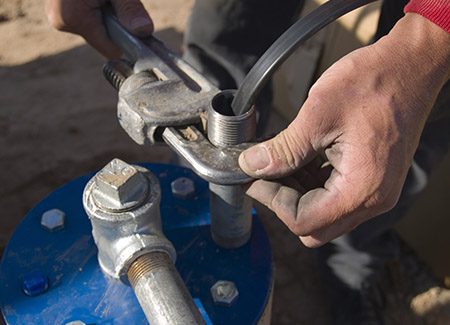Cutting-Edge Water Filtration Systems: Encouraging Healthier Living Environments
Cutting-Edge Water Filtration Systems: Encouraging Healthier Living Environments
Blog Article
Understanding the Key Parts of Effective Water Filtering Equipments

Importance of Water Purification Systems
Water filtration systems play an essential duty in making certain accessibility to secure and tidy alcohol consumption water by efficiently removing impurities and pollutants. These systems are crucial in dealing with the growing worries over water high quality and the possible wellness dangers connected with consuming polluted water. By making use of numerous filtering systems such as reverse osmosis, triggered carbon, and UV sterilization, water filtering systems can successfully eliminate dangerous materials like microorganisms, infections, heavy metals, and chemicals from the water.
In addition, water purification systems assist to enhance the taste and odor of water by getting rid of chlorine, sediments, and other pollutants that can impact its high quality. Water Filtration Systems. This enhancement in water top quality not only makes it extra tasty but additionally motivates people to consume a sufficient amount of water daily, advertising better hydration and overall health and wellness
Types of Filtering Elements

Physical filters are made to literally stress out impurities from the water. These filters can be made of products like ceramic, carbon, and even sand, and they function by trapping particles bigger than the filter's pores as water travels through.
Chemical filters utilize different chemical processes to remove impurities from the water. Instances include activated carbon filters, which adsorb impurities, and reverse osmosis membranes, which use stress to separate pollutants from the water.
Organic filters utilize living organisms like algae or germs to damage down natural issue and contaminants in the water. These filters are frequently used in wastewater treatment plants or all-natural water filtration systems.
Comprehending the various sorts of purification components is critical for picking the most ideal water filtration system for certain filtration needs.
Function of Debris Filters
Sediment filters play a critical role in water filtration systems by properly capturing solid fragments put on hold in the water. These filters are normally the very first line of protection in a purification system, getting rid of larger particles such as sand, silt, dirt, and rust prior to the water relocates with finer filtration stages. By trapping these sediments, the filters stop them from getting to downstream components, therefore extending the life-span and effectiveness of the whole system.
Neglecting this maintenance my blog can lead to clogging, lowered water circulation, and compromised filtering performance. Generally, debris filters are important elements that add dramatically to the efficiency of water filtering systems.
Function of Activated Carbon Filters
Playing an important duty in water filtration systems, activated carbon filters are instrumental in getting rid of impurities and impurities from the supply of water. These filters are developed to adsorb and catch a wide variety of contaminants, consisting of chlorine, unpredictable organic substances (VOCs), pesticides, and herbicides. The turned on carbon material has a huge area, permitting the reliable trapping of pollutants via a process called adsorption. As water goes through resource the filter, the activated carbon holds and brings in onto the pollutants, making certain that the water that appears beyond is cleaner and safer for intake.
Turned on carbon filters are very efficient at enhancing the preference and odor of water by decreasing chemicals that can influence its quality. They are likewise capable of getting rid of specific hefty steels like lead and mercury. Furthermore, these filters can assist prevent the buildup of microorganisms and algae in water, more improving its total high quality. Due to their flexibility and reliability, turned on carbon filters are a crucial part in guaranteeing that water is detoxified to the highest requirements prior to reaching customers.
Understanding Reverse Osmosis Equipments
Reverse osmosis systems are sophisticated water filtering systems that employ a sophisticated process to eliminate contaminants and pollutants from alcohol consumption water. These systems work by applying pressure to the water, forcing it with a semi-permeable membrane layer. This membrane acts as an obstacle, allowing just distilled water molecules to travel through, while obstructing bigger molecules such as minerals, chemicals, and various other contaminations. As an outcome, the water that comes out on the other side is significantly cleaner and more secure for intake.
One trick advantage of reverse osmosis systems is their capability to eliminate a wide variety of contaminants, including hefty metals, dissolved solids, infections, and microorganisms. This makes them highly reliable in improving the total high quality and security of drinking water. In addition, important link reverse osmosis systems are reasonably low-maintenance and can be installed under the sink or in a central filtration system, providing practical access to clean water throughout the family. Generally, understanding exactly how reverse osmosis systems work can assist individuals make notified choices about their water purification demands.
Verdict
In verdict, reliable water filtration systems are essential for guaranteeing clean and safe drinking water. By recognizing the function and role of each part, people can make enlightened choices when picking a water filtering system.
Water filtering systems play a vital duty in making sure accessibility to risk-free and clean drinking water by effectively getting rid of pollutants and pollutants. By using numerous filtering systems such as reverse osmosis, triggered carbon, and UV sanitation, water purification systems can effectively eliminate dangerous materials like microorganisms, viruses, hefty metals, and chemicals from the water supply.
Sediment filters play an essential role in water filtration systems by successfully catching solid particles suspended in the water (Water Softeners).Playing a vital duty in water purification systems, triggered carbon filters are instrumental in removing pollutants and contaminants from the water supply.Reverse osmosis systems are innovative water purification systems that use an innovative process to eliminate contaminants and contaminations from drinking water
Report this page